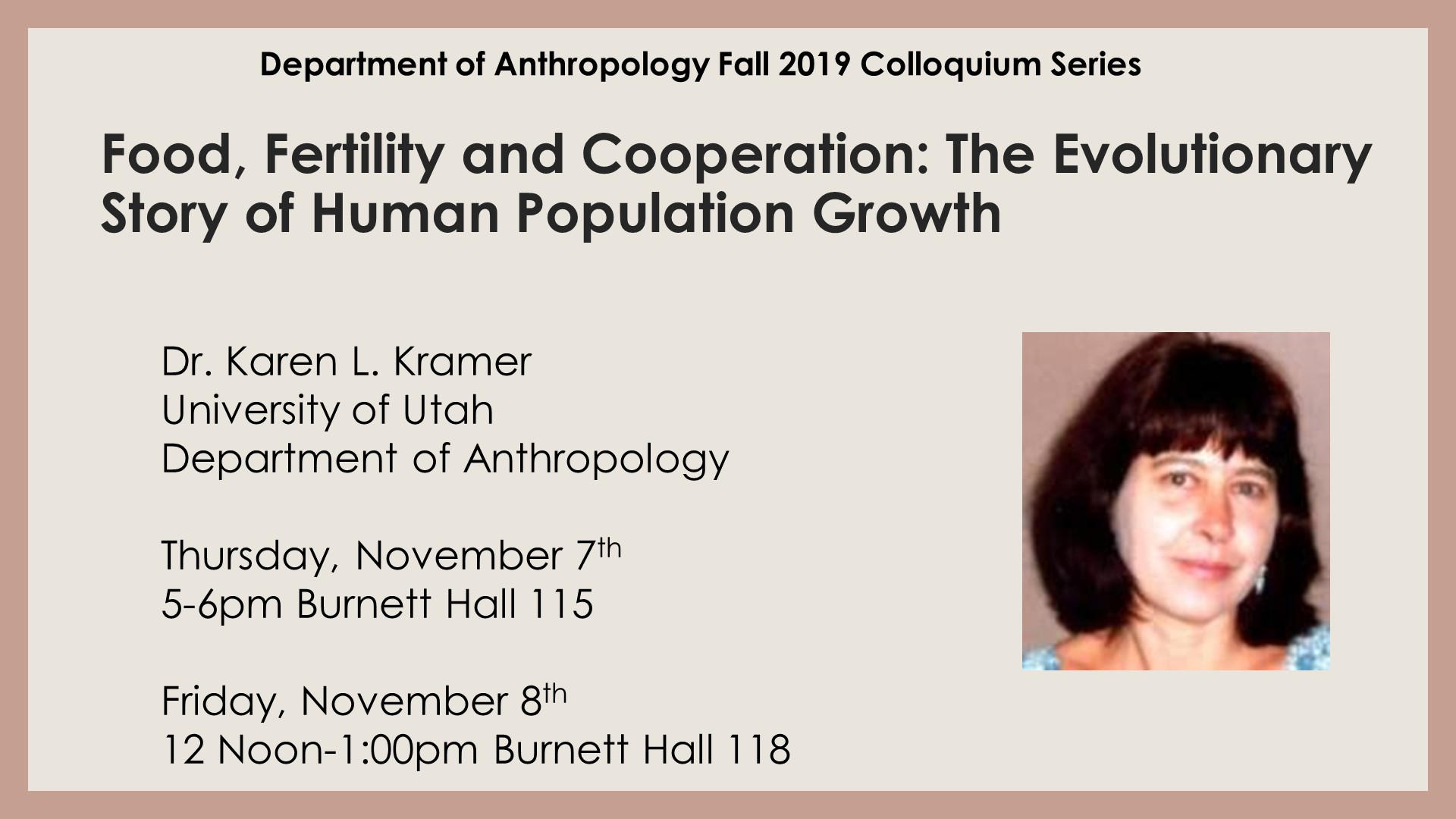
Join the Anthropology Department for our next colloquium speaker, this Thursday, November 7th. Dr. Karen Kramer from the University of Utah will be speaking over "Food, Fertility and Cooperation: The Evolutionary Story of Human Population Growth."
One of the characteristics that defines humans is our demographic success compared to other closely related species. The capacity for population growth has profound effects on people’s lives today, but it is also one of the remarkable stories of our evolutionary history. Compared to other closely related species, humans are particularly good at procuring food, surviving, finding mates, reproducing and cooperating. It is no accident that these traits are linked. My talk will focus on how evolved and derived changes in the human diet, life history, sociality and cooperation are linked in a brilliant strategy that made us incredibly successful as a species. Following an overview of these evolutionary changes, I will use several examples from my ethnographic research with South American hunter-gatherers and Maya agriculturalists to illustrate how cooperation permits flexibility in our physiology, sociality and demography that allow humans to maximize fertility and survival in ways not available to our closest nonhuman relatives. In conclusion, I bring forward what we can learn from traditional societies to inform us about population growth today.